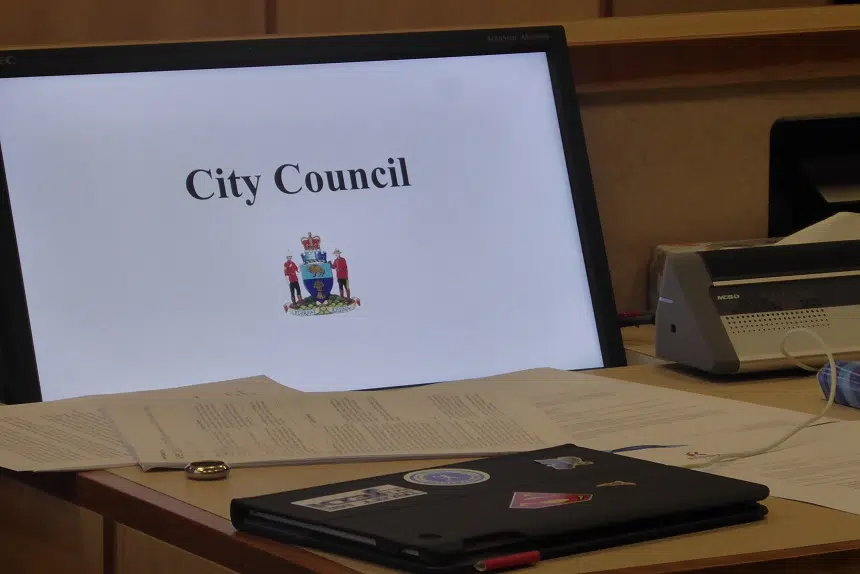The same day Regina city administration’s draft budgets for 2023 and 2024 were released, a city councillor filed a court application over it on behalf of another city councillor.
In the proposed budget released Tuesday, there were millions of dollars in spending, but what wasn’t there was funding to end homelessness through a housing-first, supportive-housing model.
That’s a problem for advocates because, at a city council meeting in June, the councillors unanimously agreed to have administration include full operational funding in the budget to solve homelessness through such a model.
The court application to direct the city manager to do just that was filed by Coun. Dan LeBlanc, who is a lawyer, on behalf of Coun. Andrew Stevens and Florence Stratton, a resident of Regina.
On Wednesday, LeBlanc said council has already preformed its legislative and democratic role in approving the June motion.
“The problem is that wasn’t followed, and so from a political perspective, we’re out of options as to what to get in that proposed budget and unfortunately that means only legal recourse is available so the (court) application was necessary,” he explained.
LeBlanc said since the council dates to discuss the budget are coming up soon, the application was necessary.
The issue could be brought up at that meeting, but LeBlanc said, practically, if something is in the draft budget, it takes six votes to take it out. If it’s not in the proposed budget, it takes six votes to put it into the budget.
“That stuff sometimes makes a difference,” said LeBlanc.
He said the motion would also require councillors to take a position on homelessness, which has become a bigger issue in Regina.
“If it’s not in the proposed budget, it’s entirely possible for us to sort of hide behind and there be no mention of it. And I think that’s an issue for accountability,” he said.
But LeBlanc also sees it as an issue of democratic accountability.
“I say elected people get to run the show and the unelected city manager follows our clear direction or ought to do so. That’s the fundamental point,” explained LeBlanc.
If it doesn’t work that way, then LeBlanc said it hamstrings councillors.
The application directs administration to include just the $24.9 million in operating funding for the plan in the budget, not what it had worked out as the capital costs. LeBlanc pointed to the 700 vacant social housing units currently in Regina, and said they could be used for the homeless population.
“It doesn’t take a rocket scientist to put homeless people in vacant housing, so it’s not clear at all why we would need to build 500 more units and have that capital expense,” said LeBlanc.
In response to administration’s rationale for not putting the plan into the budget — in part, the cost — LeBlanc said those are relevant policy considerations.
“But what I say is policy direction of the city is set by council at council in public and when we provide clear direction saying ‘Put this in so we, the elected people, can discuss these principles in open debate in December,’ it’s important that that be followed,” said LeBlanc.
Speaking Wednesday, Mayor Sandra Masters didn’t mince words on her thoughts about the court application.
“If you’re asking me as the head of council, it would be clearly a court application (and) a matter of court. If you’re asking me personally, I think it’s disgusting,” said Masters.
“I think that for a first female city manager, there’s tons of sexism in it. Myself, I look at it and go, ‘How do two parties who are party to a council motion then represent it legally?’ It’s a curiosity to me, but that’s for lawyers to figure out, not for me.”
The text of the motion from June read in part “that Administration be directed to include the following in the 2023 proposed budget: 1. Full operational funding to solve homelessness throughout the City using a housing-first, supportive-housing model. This draft funding to be clearly demarcated in a line item of its own. 2. Any supplemental report required to explain the costing of point 1, above.”
However, Masters said it was understood that council wasn’t directing what administration should recommend.
“We were not approving anything other than we were looking for the numbers to be included in the budget book — and they have been — and it would be debated at budget time,” said Masters.
Masters and every city councillor approved the motion in June.
“All of council was supportive of the numbers coming forward from administration to be debated at budget. That’s what the support was. It was never anything more than that,” she explained.
In ending the news conference Wednesday, Masters said city manager Niki Anderson was being inundated with emails from the public and people were looking for her personal address and phone numbers because “they think she’s a horrible human being right now.”
Addressing homelessness
Barry Lacey, the city’s executive director of Financial Strategy & Sustainability, said the motion would require a minimum of $98 million in capital costs for new housing units for 488 people – the number of homeless counted in the city in a point-in-time count in 2021 – and $25 million for annual operating costs.
In terms of cost to taxpayers, the budget book released Tuesday said it would mean a 21.7 per cent mill rate increase in 2023, which would mean another $40.59 a month on the property taxes of the average home assessed at $315,000. That would be followed by an extra 4.24 per cent mill rate increase in 2024, which would mean another $11.90 increase on the average home’s property taxes.
While explaining why administration decided not to recommend that this be fully funded in the coming years, Lacey said city administration is supposed to provide its best advice to the city which balances the budget with city operations and council priorities.
“We acknowledge that homelessness is a significant issue to address in Regina … However, as reinforced by Regina’s plan to end homelessness, administration believes solutions of homelessness are best addressed by multiple levels of government working together,” said Lacey.
“When you look at it, I think as administration, we just did not feel that we can advance that recommendation in our proposed budget.”
According to the budget book, the plan would increase expenses by $61.5 million in 2023, and then another $12.2 million in 2024.
Lacey said addressing homelessness requires all three levels of government and the municipality’s role is more about co-ordination and some other level of involvement.
“(The plan to end homelessness) recognizes that the province and the federal government are probably the more significant funders with respect to addressing this matter,” said Lacey.
On Tuesday, Masters agreed with administration’s assessment of the situation, saying not including the plan in the draft budget was the right thing to do.
“I think that (addressing homelessness is) beyond our jurisdiction and I hear from some that folks don’t care about jurisdiction. Our job is to care about jurisdiction,” said Masters, explaining the city doesn’t deal with social services, health care or corrections.
“We are legislated to balance our budget while other levels of government are clearly not. And some governments work harder than others to balance their budgets, but we’re required to.”
Masters said she wouldn’t vote for putting the homelessness plan in the budget come the meetings in December. She said the pre-budget survey of the public showed housing affordability was a significant concern and taking on homelessness like that would be beyond the city’s mandate of things like roads, parks, water, sewage and policing.
“Beyond that is an overreach at a time when we can’t overreach,” said Masters.











